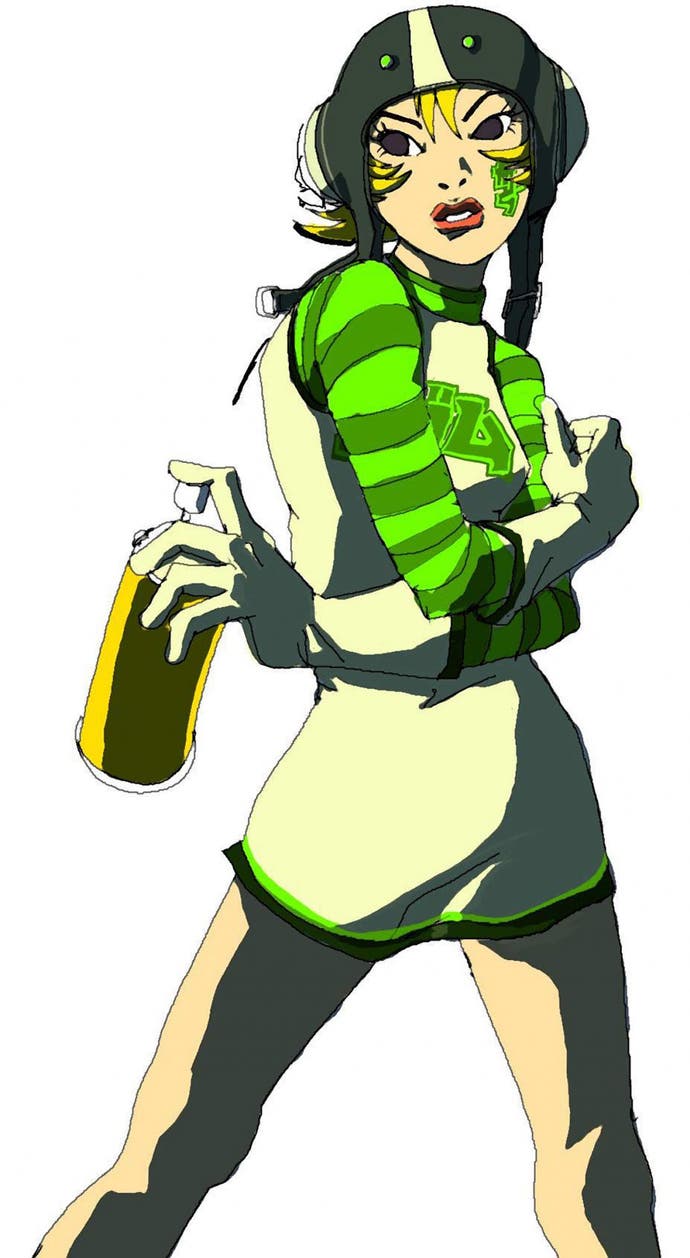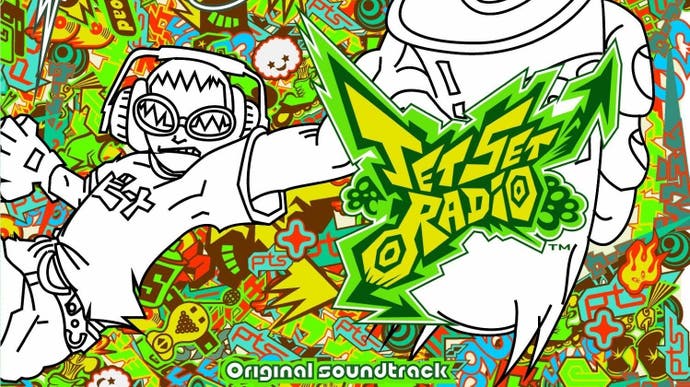Jet Set Radio may be with us no more, but its influence is everywhere
Get your skates on.
Despite the rough ride the Dreamcast had back in the day, it definitely brought us some diamonds, didn't it? Sonic Adventure 1 and 2, Power Stone, Trickstyle and that's just to name a few personal picks...
Jet Set Radio was the quirky, whimsical, neon-infused sporty, adventure street-art themed video game that first came into our lives via the Dreamcast. And it was arguably one of the standout titles on that platform and later spawned a sequel, Jet Set Radio Future on Xbox in 2002. I'm still not-so-secretly hoping for a reboot someday.
Jet Set Radio is an absolute classic, and it remains so to this day. It had an unlikely, unique premise where you're part of a graffiti gang, tagging and running away from the cops in a colourful urban playground - all of which proved to make for a very fun video game. It's a thing of boundless creativity.

Its style - and its genre - is all very much of its time. Skating games were big back in the late 90s and early 2000s, particularly with Neversoft's Tony Hawk: Pro Skater defining the era in so many ways. Jet Set Radio, though, is a very different take, with its own distinctive aesthetics and colourful swagger. In a very vivid, fictionalised Tokyo, you play as a member of a youth gang and, well, basically tag everywhere with graffiti and not get caught by the cops. The spray-painting turf war is realised with incredible zest.
Jet Set Radio's thematic influence can still be felt today, almost two decades on in many current generation titles in which street art is used as an exciting video game mechanic. Splatoon is a prime example as many fans draw parallels between the two games, with many fans dubbing Splatoon as Nintendo's equivalent to Jet Set Radio. Indeed, the turf war mechanic feels like an expansion of Jet Set Radio's - you could argue that it's the very heart of both games. Another game where the influence is felt includes the upcoming rollerblading adventure game, Neon Tail, which comes from the people behind Rayman Origins. The game has very similar aesthetics.
More recently, Jet Set Radio's influence can be keenly felt in the highly anticipated, upcoming PS4 exclusive, Concrete Genie by developer Pixelopus. You can literally paint the town red, or any of a whole spectrum of colours for that matter. The street art video game mechanic first pioneered by Jet Set Radio is pushed to the next level, and it's essential to Concrete Genie's themes and story. In Pixelopus' upcoming game, you play as a young boy named Ash, in which you help repaint the small, run down town of Denska back to its picturesque glory using a magic paintbrush, all while trying to beat the bullies.
Even playing through the motion-controlled spray-painting segments as Delsin Rowe on InFamous: Second Son and the neon-graffiti segments in InFamous: First Light as Fetch felt highly reminiscent of Jet Set Radio. Those segments were some of my favourite aspects of First Light, and Jet Set Radio was immediately what sprung to mind whilst I was playing. Then I thought how much influence and importance this game has had and how saddening that people don't speak much of it nowadays.
Jet Set Radio was such a unique, pioneering game, with a rich legacy and to this day it remains one of Sega's finest. I'd love to see it make a grand return in its own right, as there's always a gap in the market for some more colourful swagger. Oh well - I guess for now I'll just have to make do with the Steam version.
